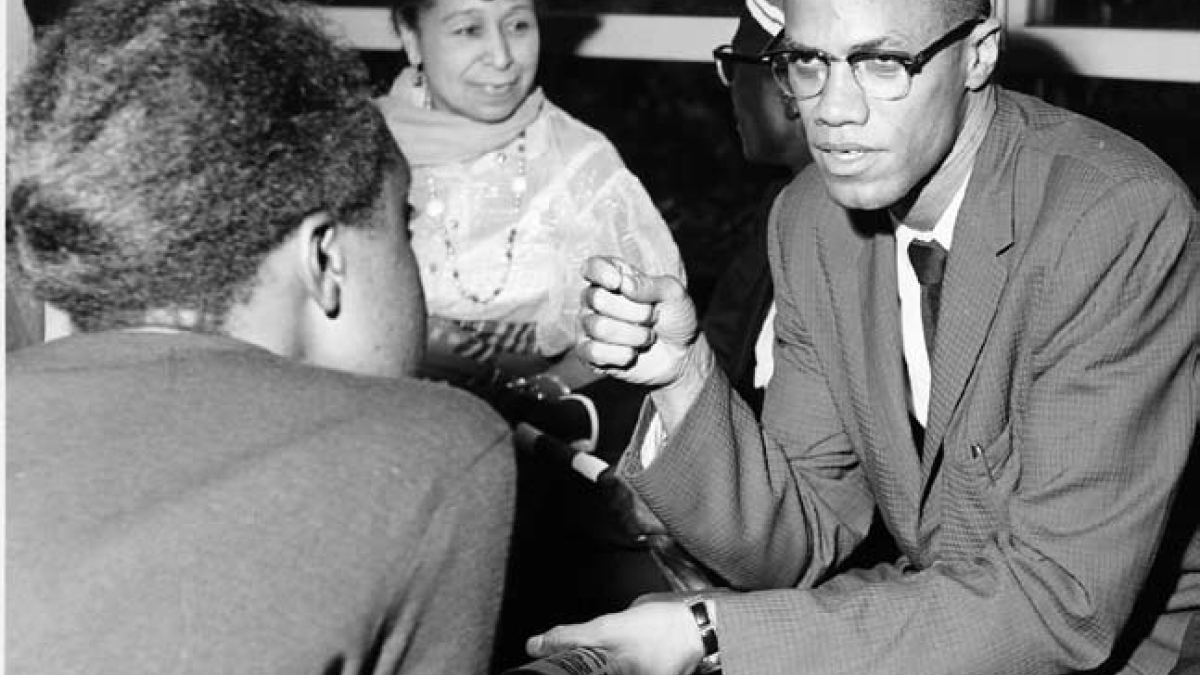Investigative journalism and history will converge on March 23 when Arizona State University’s Institute for Humanities Research will sponsor a virtual talk with Abdur-Rahman Muhammad, whose years of reporting led to the exoneration of two men convicted of the 1965 assassination of Malcolm X.
The conversation will take place at 3 p.m. and registration is available.
The event is hosted by The Colonial, the Postcolonial and Decolonial research cluster, which is part of the Institute for Humanities Research, supported by the Department of English, and ASU’s African and African American Faculty and Staff Association have contributed to the event.
Muhammad’s investigation was portrayed in the 2020 Netflix documentary “Who Killed Malcolm X.” The documentary convinced a Manhattan prosecutor to reopen the case, and in 2021, Muhammad Aziz and Khalil Islam had their convictions vacated. Muhammad is doing another documentary for Netflix and is writing a book about the assassination.
“They found some information from the FBI that nobody had had before because apparently the FBI withheld the evidence,” said Keith Miller, an ASU English professor who will co-host the event. Miller also has written a book he hopes to get published that questions the authorship of "The Autobiography of Malcolm X," published in 1965.
Melissa Free, an assistant professor in the Department of English who is co-hosting the event with Miller, praised Muhammad’s work, conviction and perseverance, saying he raised questions “that others didn’t want to ask."
“He wanted to see justice done, both by seeing the actual assassins convicted and the people who had been wrongfully convicted exonerated,” Free said. “These are real people with families and friends. Their exoneration matters. Their legacy matters. The truth matters.”
Although the focus of the event will be on the assassination and exoneration process, Malcolm X’s legacy likely will be discussed as well.
“Part of his legacy is instilling pride and self-respect,” Miller said. “To paraphrase, he declared that 'whites taught us to hate ourselves, to hate our skin color and our hair. We don’t need whites’ approval to be proud of our skin color and our hair and our culture.'
“This message had an enormous impact on African Americans that endures to this day. T-shirts bearing his likeness are very popular in Harlem, and the main north-south street in Harlem was rechristened as 'Malcolm X Boulevard.'”
Top image: Malcolm X, likely at a welcoming event for the African American Students Foundation in 1959 or 1960. Photo courtesy Wikimedia
More Law, journalism and politics

A new twist on fantasy sports brought on by ASU ties
A new fantasy sports gaming app is taking traditional fantasy sports and mixing them with a strategic, territory-based twist.Maptasy Sports started as a passion project for Arizona State University…

'Politics Beyond the Aisle' series to explore the stories of public officials
In an effort to build a stronger connection between students and political and civic leaders, Arizona State University’s School of Politics and Global Studies hosted the first event of its new series…

ASU committed to advancing free speech
A core pillar of democracy and our concept as a nation has always been freedom — that includes freedom of speech. But what does that really mean?Higher education doesn’t have an agenda to curate a…


